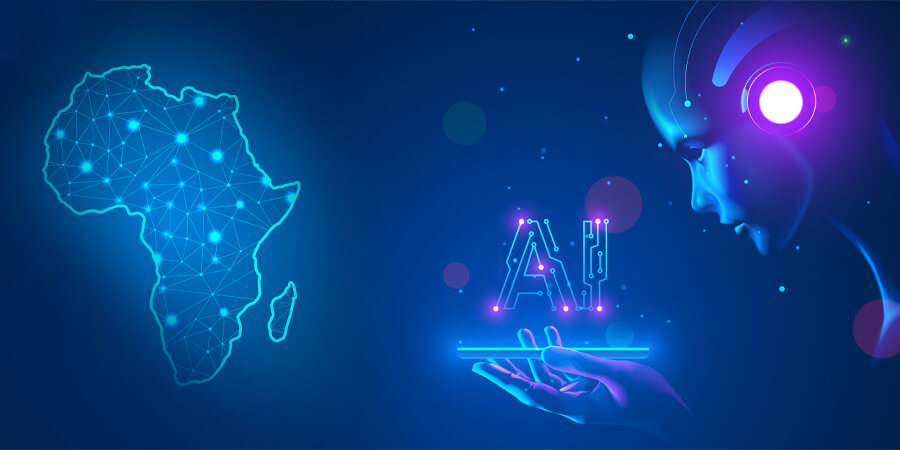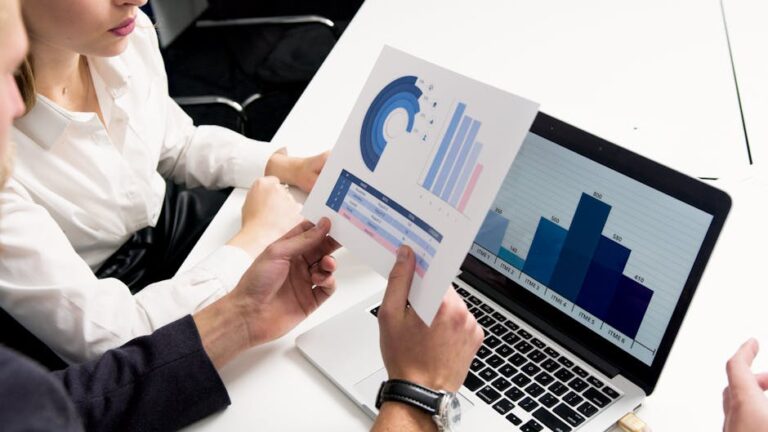
The role of AI in Africa’s economic transformation is becoming increasingly significant as the continent embraces new technologies to drive growth and development. Artificial intelligence (AI) has the potential to revolutionize key sectors such as agriculture, healthcare, and finance, helping Africa address challenges and accelerate its economic transformation. From improving efficiency in industries to fostering innovation, AI is paving the way for Africa’s digital future.
AI’s Impact on Key Sectors in Africa
AI is transforming several industries in Africa, providing solutions to long-standing problems and unlocking new opportunities for growth. Its application spans across sectors, improving efficiency, decision-making, and service delivery.
Agriculture
Agriculture remains a cornerstone of Africa’s economy, employing around 60% of the population. AI-powered technologies are helping farmers make more informed decisions, improve crop yields, and optimize resource use. Machine learning algorithms can analyse soil data, predict weather patterns, and offer advice on the best time to plant or harvest. Drones equipped with AI are also being used to monitor crops and detect pests or diseases early.
For example, WeFarm, a peer-to-peer platform, uses AI to connect farmers with agricultural expertise. Through this system, farmers receive critical advice via SMS, which improves their productivity and income.
Healthcare
AI is playing a crucial role in transforming Africa’s healthcare system. With the continent facing a shortage of healthcare workers and medical facilities, AI-powered solutions are helping bridge the gap. AI can assist in diagnosing diseases, analysing medical data, and even predicting outbreaks.
For instance, the use of AI in diagnosing diseases such as malaria and tuberculosis has led to faster and more accurate detection, saving lives. A study by the World Health Organization (WHO) indicates that AI-based tools are instrumental in detecting conditions using images, thereby addressing the shortage of skilled radiologists in rural areas.
AI in Finance: Enhancing Financial Inclusion
The role of AI in Africa’s economic transformation is particularly evident in the financial sector. AI-driven technologies are helping expand financial inclusion by making banking services more accessible to underserved populations. AI algorithms are used in mobile banking, credit scoring, and fraud detection, providing greater security and convenience for users.
- Mobile Banking: AI is powering mobile banking apps, enabling users to perform transactions and manage their finances using smartphones.
- Credit Scoring: AI-driven credit scoring models assess creditworthiness based on alternative data, allowing more people to access loans without traditional banking history.
- Fraud Detection: AI helps detect unusual patterns and prevent fraud, protecting both financial institutions and customers.
A notable example is the rise of AI-driven fintech companies like Flutterwave and Paga, which have revolutionized payments and digital financial services in countries such as Nigeria and Kenya.
AI’s Role in Education and Skills Development
AI is also shaping education and skills development in Africa. By providing personalized learning experiences, AI tools are helping to address educational gaps and improve student outcomes. AI-powered platforms like Ubongo deliver interactive learning content to millions of children across Africa through TV, radio, and mobile devices.
Moreover, AI is enhancing adult education by offering online training programs and upskilling opportunities in fields such as data science and programming. These initiatives are crucial for preparing Africa’s workforce for the digital economy and ensuring that the continent can fully leverage AI’s potential.
Challenges and Opportunities for AI Adoption in Africa
While AI is playing a pivotal role in Africa’s economic transformation, several challenges remain. These include:
- Infrastructure: Many African countries lack the necessary digital infrastructure to fully support AI technologies, particularly in rural areas where internet access is limited.
- Data Availability: AI systems rely on large datasets for accurate predictions and decision-making. However, the availability and quality of data in Africa are often limited.
- Digital Skills: There is a shortage of AI talent in Africa, which hampers the development and adoption of AI solutions.
Despite these challenges, AI presents immense opportunities for Africa. Investments in digital infrastructure and data collection, coupled with the growth of AI education and training programs, can help unlock AI’s full potential on the continent.
Examples of AI-Powered Innovations in Africa
- Zindi: A data science competition platform that connects African data scientists with companies to solve real-world problems using AI.
- DataProphet: A South African startup that uses AI to improve manufacturing processes by analysing data to reduce defects and improve efficiency.
- Aerobotics: Aerial data analytics company using AI and drone technology to help farmers manage crops more effectively.
AI as a Catalyst for Economic Growth
AI is not just a technological tool; it is a catalyst for Africa’s economic growth. By improving productivity in agriculture, healthcare, and financial services, AI is driving economic transformation across the continent. Moreover, AI is fostering innovation, creating new industries, and generating employment opportunities in data science, machine learning, and software development.
As African governments and businesses continue to invest in AI technologies, the continent is well-positioned to capitalize on the benefits of AI and secure its place in the global digital economy. Collaborative efforts between governments, private companies, and international organizations will be key to ensuring that AI contributes to inclusive and sustainable growth across Africa.
Discover more from Amebo Media
Subscribe now to keep reading and get access to the full archive.




